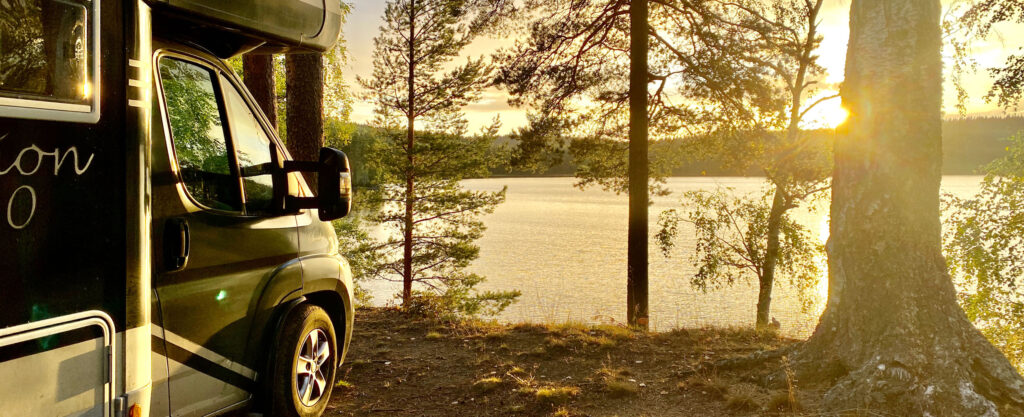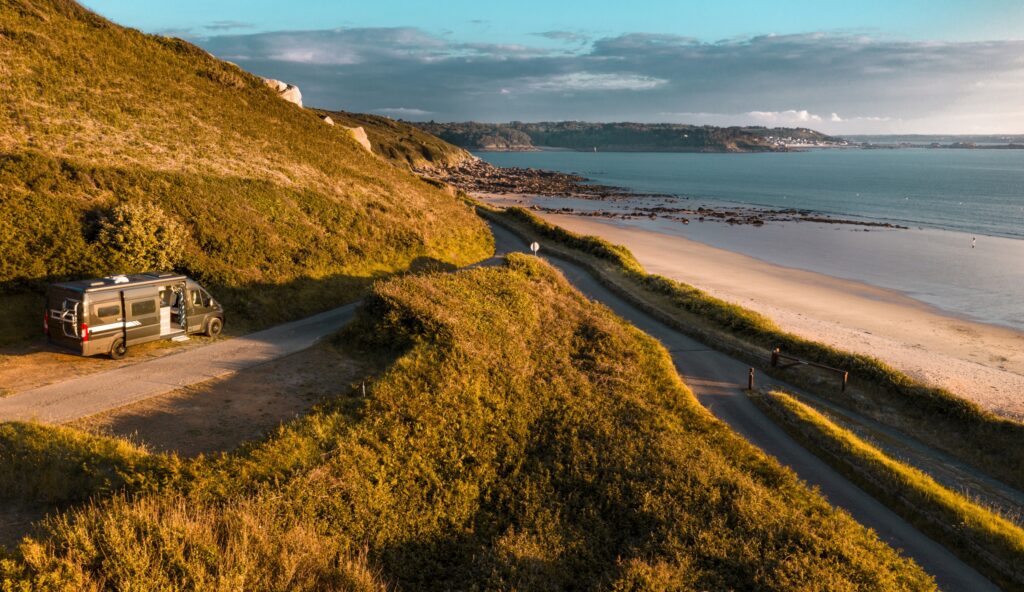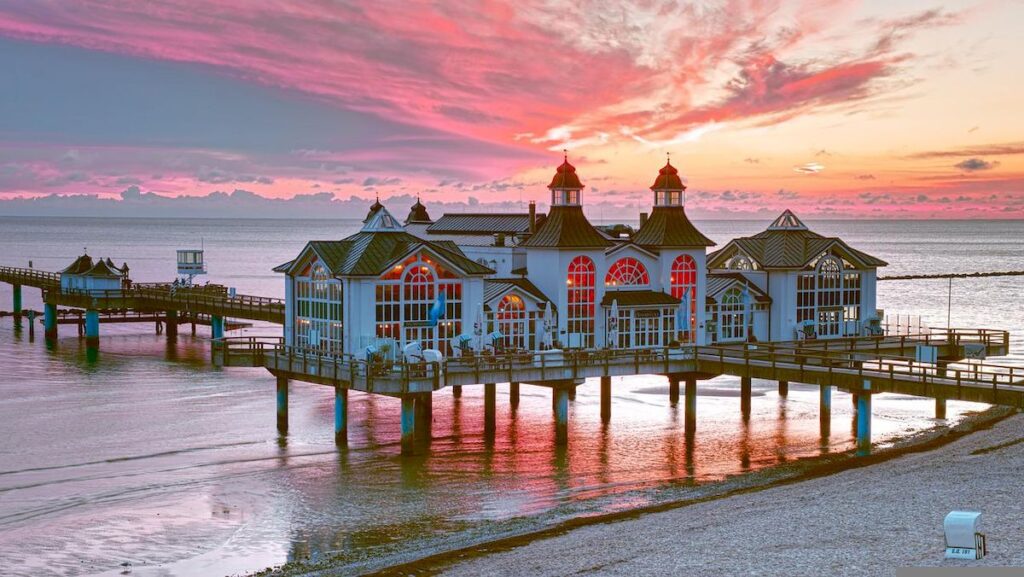50% discount for the first 100 vehicles: Only 10% service fee for one year. Register now!
Rules for wild camping – and tips for free camping
, Jun 2, 2022, Reading time: 11 min
Reading time: 11 min
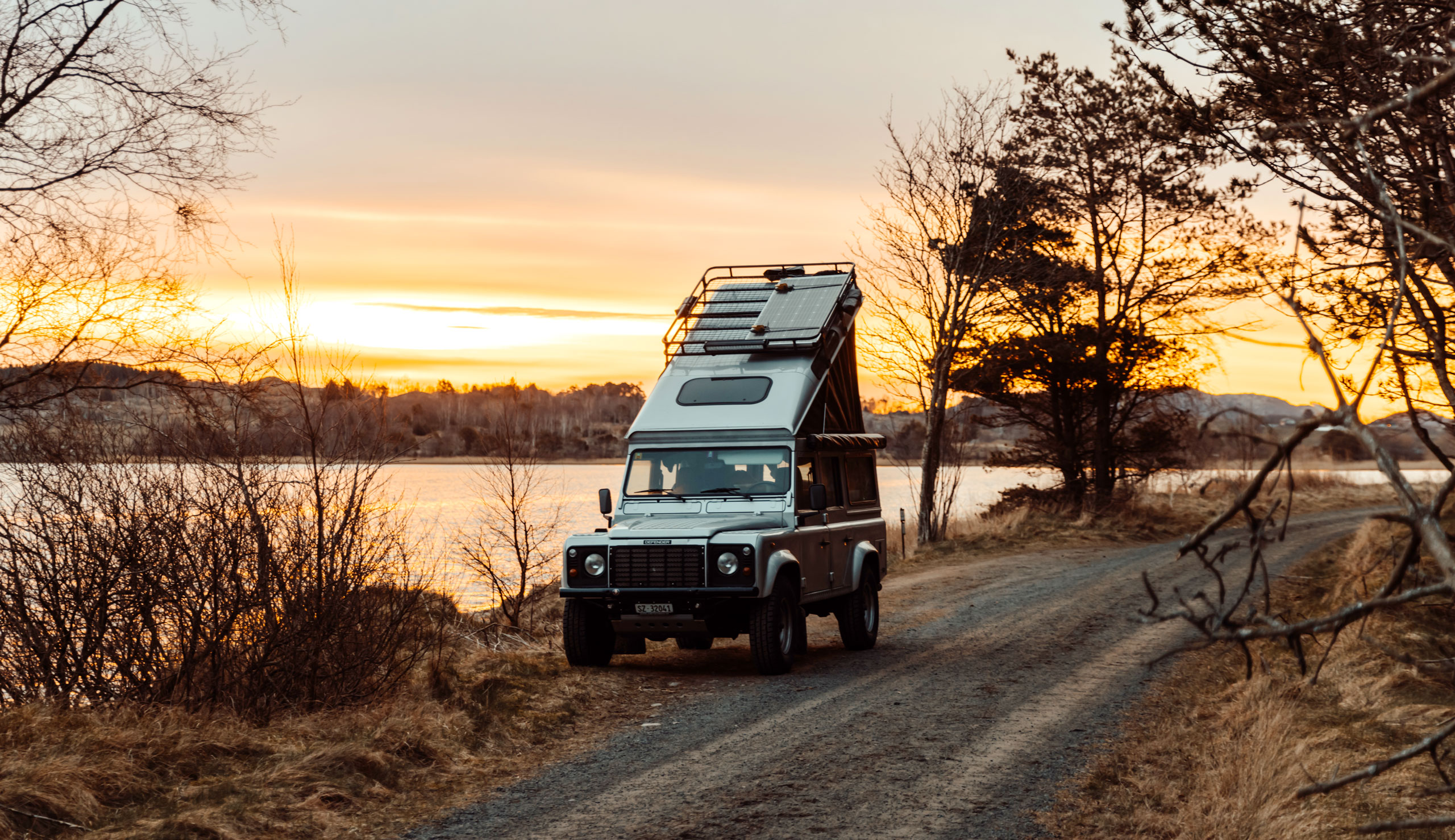
• • •
Are you eager to wild camp, but a little unsure of the rules that apply for wild camping? Then this article is for you. We go through laws and regulations, and offer tips so that you can equip yourself properly and find the best wild camping sites.
How is wild camping defined?
When traveling with a motorhome, campervan, or caravan, you can choose to spend the night at campsites or pitches, or you can choose wild camping. Wild camping means spending the night in a place not specifically prepared for camping vehicles, for example in a parking lot or in an area close to nature. All ways to spend the night have their pros and cons, and can be suitable for different occasions.
To spend the night at campsites
Campsites can often be close to nature and beautiful scenery, and it is not unusual for a campsite to have the very best location right next to the sea or a lake. At a campsite, you will find all the services you need, such as toilets, showers, electricity and the possibility to fill and empty tanks. At some campsites, there are also different kinds of activities such as restaurants, swimming pools, and activities for children. Camping overnight is generally more expensive than camping at a pitch, and how big a difference there is, varies. There is everything from simple nature campsites, which cost about the same as a pitch, to exclusive campsites with all the activities you can imagine, which of course is represented by the higher price.

To spend the night on motorhome stop sites
A stop site is a slightly simpler place, compared to a campsite, and is intended as an overnight place for motorhomes and campervans. In some stop sites even caravans are welcome, but it is common for the stop sites to be intended for motorhomes only. Many stop sites are centrally located in a city or near an attraction, while others are located in the countryside or in nature.
The surface can be asphalt, gravel or grass and there is often some form of service, but not always. For example, there may be electricity, toilets and / or the opportunity to empty and fill tanks. It is, however, unusual to be able to empty greywater and wastewater on a stop site. Unlike a campsite, stop sites are rarely staffed and you often pay the fee via app, via Swish of perhaps in a nearby restaurant or marina.
To wild camp
The third way to spend the night with a motorhome or caravan is to wild camp. When you are wild camping, you stay the night in a place of your own choosing. Many people like to wild camp near nature, perhaps with a view of a lake or some other beautiful natural area. It is important to keep in mind that you must follow laws and regulations, so that you don’t stay in a place where you are not allowed to stay overnight.

Rent the perfect camping vehicle for you and start your own camping trip.
Rent a motorhomeRent a campervanRent a caravanWhere can you wild camp? What does the law say?
When you go wild camping, you need to keep track of laws and regulations for wild camping, which differs between countries. Rules can sometimes also vary between different regions and areas. This means that you need to keep an eye out for local regulations and any prohibition signs.
In general, in all countries, it is important to care for the nature and not litter or disturb. If you choose to spend the night in places other than campsites and stop sites, for example in a parking lot, it may sometimes be appropriate to avoid “camping behavior”. This means that you should avoid folding out the step or awning, and not to place your outdoor furniture next to the vehicle. Below we go through some of the most important rules in some surrounding countries.
Rules for wild camping in Sweden
It is allowed to wild camp in Sweden, but according to the Off-Road Driving Act, it is forbidden to drive in terrain with a motorhome and caravan. This means that you are not allowed to park in forests, on beaches, in pastures or on lawns. However, you can park on asphalt, gravel or other surfaces that are not damaged by the vehicle, next to a beach or a nature area.
Read more about wild camping in Sweden in our separate article with further information, tips and beautiful spots for wild camping in Sweden.
Rules for wild camping in Norway
It is allowed to wild camp in Norway as long as you stay away from inhabited houses. The motorhome or caravan must be at least 150 meters from residential buildings and cottages. Overnight stays in vehicles parked on a public road, street or carpark are also permitted.
Please note that you are obliged to show consideration for the surroundings and care for the nature. You must not litter and you must avoid cultivated and private land. Also remember to keep an eye out for local regulations. In some tourist-dense areas, especially in Lofoten and northern Norway, there may be special restrictions on wild camping, especially in the summer. At these sites you may need to stay at a campsite.
Rules for wild camping in Finland
It is allowed to wild camp in Finland, but not near buildings. It is also permitted to spend the night in vehicles parked on a public road, street or car park. However, you may not stay on private land without the landowner’s permission. You should also avoid cultivated land, nature reserves and national parks. Please note that there can be local camping bans. Look out for the sign “Leiriytyminen kielletty” (Camping prohibited).
Rules for wild camping in the rest of Europe
Rules for wild camping vary around Europe. In Denmark, it is allowed to spend the night in a motorhome parked on a road, street or car park, while the rules for wild camping on public land are more restrictive. In Italy, wild camping is generally allowed, but as wild camping has become common, more and more local bans have been added that must be followed.
In many countries, wild camping is allowed if the landowner has given permission, while the rules on public land are more restrictive. This applies for example to Germany, Austria, France, Spain and Croatia. In addition, in Germany and Austria, restrictions may vary between regions. In some countries, wild camping on public land is not allowed at all. This applies for example to Poland and the Czech Republic.
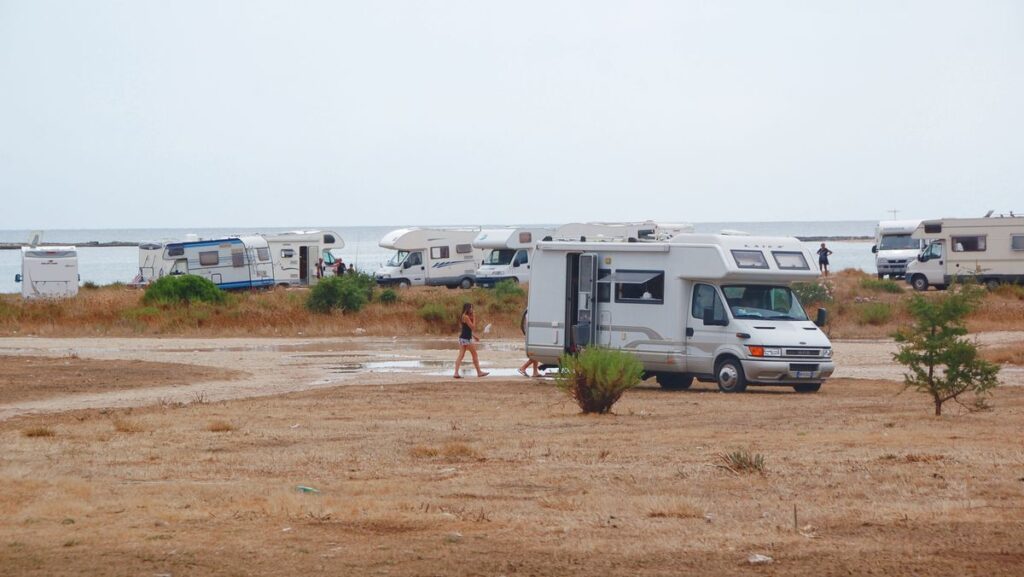
Rent the perfect camping vehicle for you and start your own camping trip.
Rent a motorhomeRent a campervanRent a caravanHow do you prepare for wild camping?
If you are not used to wild camping, it may be good to start with one night, to see how everything works, and to investigate how much battery capacity is needed. How long the energy lasts depends on how good the battery is, whether there are one or two batteries, and whether the battery is powered by solar cells or not. What also matters is how much energy you consume. If you use an inverter, the energy is consumed faster, as well as if you charge and use a lot of technical equipment.
When wild camping for more than one night, it is also necessary to have emptied the toilet and wastewater and to have filled up the food supply. A tip is to take the opportunity to fill and empty as soon as you have access to the service. Service is available at all campsites and at some pitches. You can also empty the toilet at some of the Swedish Transport Administration’s rest areas, and you can fill up with water at gas stations. Here is a checklist of things to do before going out wild camping:
- Empty gray and black water so that there is space for new. Gray water is wastewater from the sink and shower, and black water is from the toilet.
- Empty the trash can so that the wastebasket is empty.
- Check the gas tubes so you have enough LPG for cooking, the fridge, and possibly heating (if you don’t have a diesel heater).
- Charge the batteries if you are standing by a power pole.
- Fill the freshwater tank with water so that you have enough water. You may also have extra water in bottles or cans.
- Fill the pantries with food so you can get by for a few days.
Preparing for wild camping is very important. To make sure you don’t forget anything, we have put together a camping packing list. You can download it for free here.
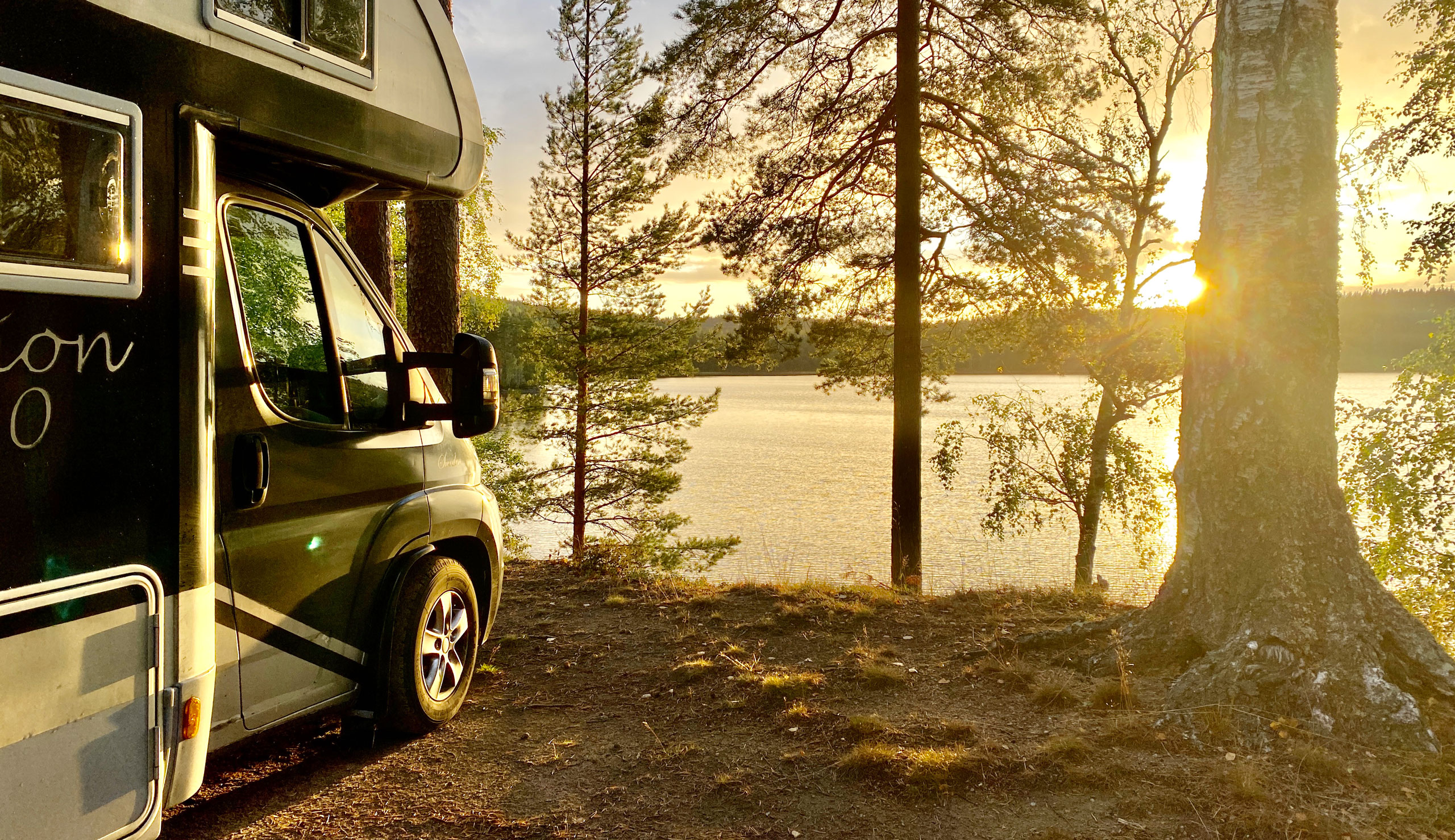
How do you find places where you can wild camp?
Finding the perfect wild camping site can sometimes be easier said than done. Sometimes you happen to find a great place quickly, and other times it can be hopeless to find a good place. In order to take care of nature, and not break the Off-Road Driving Act, it can be good to find a place on asphalt, gravel or other surfaces that are not damaged by the vehicle. Then, of course, it’s not wrong if you get a view of a scenic area!
One way to find free camping sites is just to look for them, for example by looking if there is a suitable parking space next to a beach or a stretch of coast. You can also get tips from other wild campers, for example through Facebook groups, forums, blogs or when you meet other like-minded people in stopover sites. In addition, there are various apps, which help you find campsites, stopover sites, parking lots and rest areas:
- Park4Night – app for campsites, stopover sites, parking lots and rest areas
- CamperContact – app for campsites and stopover sites with and without service
- Ställplatser – app for campsites, stopover sites and parking lots
- Rast & Camp – app for campsites, stopover sites and rest areas
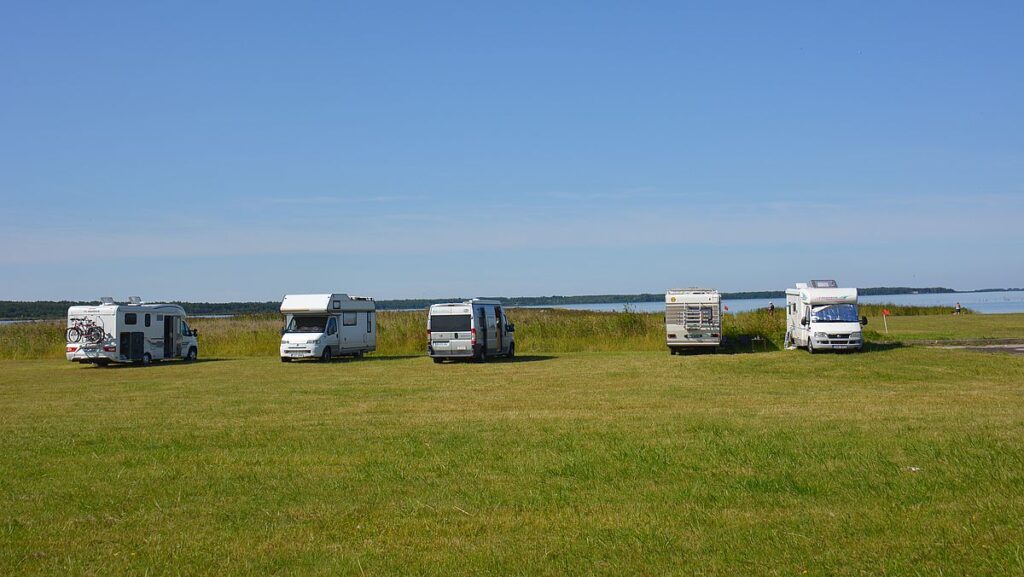
What equipment do you need when going wild camping?
You don’t necessarily need any extra equipment when going wild camping, but there is equipment that makes it easier and more comfortable. What you need depends on how long and how often you plan to go wild camping, what time of year you’ll be out, and what your general needs are. For example, if you plan on wild camping during the winter it might be good to get or rent a vehicle that is adapted for year-round use.
Below is a list of additional equipment that can facilitate wild camping, especially if you want to be able to be wild camping several nights in a row. If you rent a motorhome or campervan, you can ask if any of the following equipment is in the vehicle:
- Solar cells can be good for charging extra electricity to the batteries.
- A power generator, which is powered by gasoline, is a way to produce extra electricity. Keep in mind that an electric plant makes noise and therefore cannot always be used.
- A lithium battery (or an extra living room battery) makes the energy last longer.
- An inverter used to convert 12 volts to 220, which is good if you want to charge computers and other technical equipment.
- An extra toilet cassette can be good if you want to be wild camping several nights in a row. The toilet must only be emptied in an intended location.

Enjoy wild camping!
Take care of nature and avoid disturbing or littering. As long as we who travel by motorhome, campervan or caravan behave properly och show that we appreciate and cherish the places we visit, we vill also be welcome and well received. And last but not least, remember to enjoy wild camping! What could be more wonderful than opening the motorhome or caravan door to a new amazing view every morning?
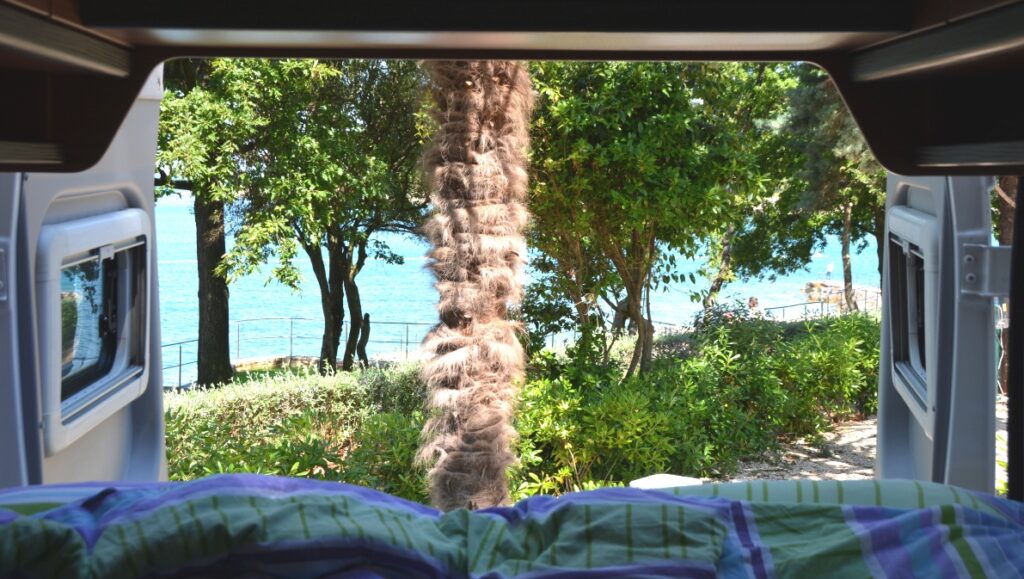
Newest articles
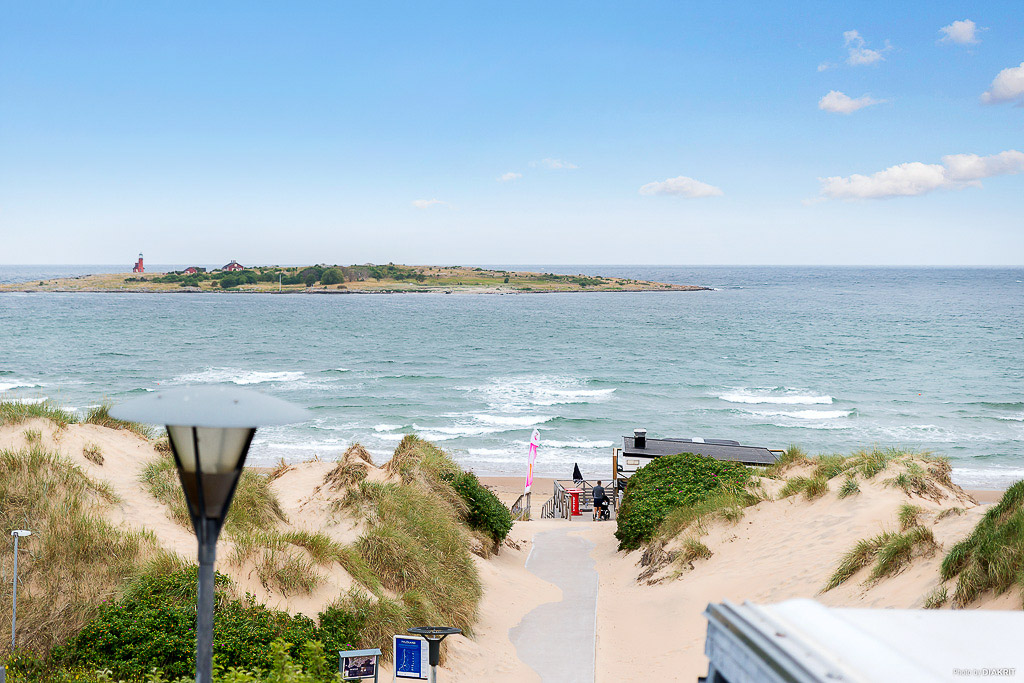
Camping in Halmstad and southern Sweden: Your guide to the best campsites and nature experiences
Halmstad’s honestly kind of a hidden treasure on Sweden’s west...
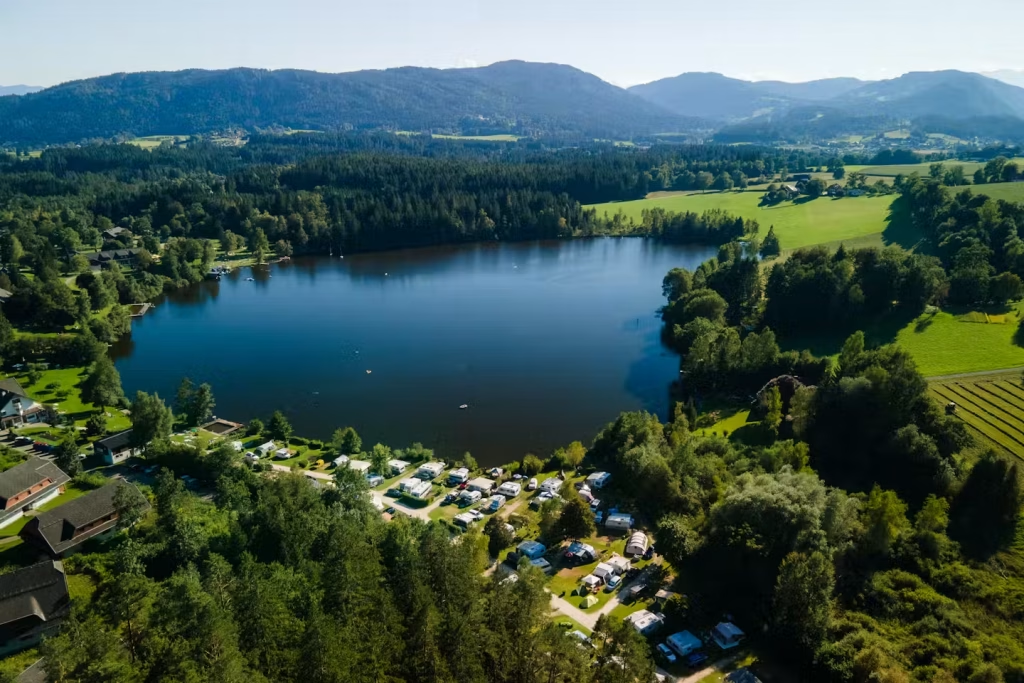
Camping in Carinthia: The best campsites and day trips for your Austrian camping holiday
Carinthia, Austria’s southernmost province, is a true paradise for campers....
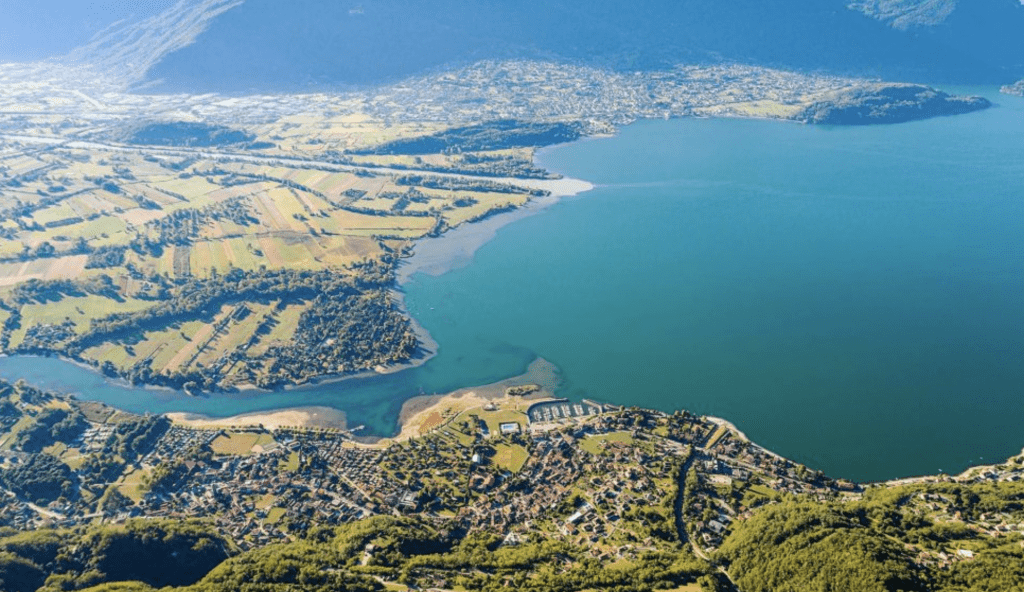
The 8 best campsites on Lake Como
Warming sun rays, a light breeze caressing your face, and...
